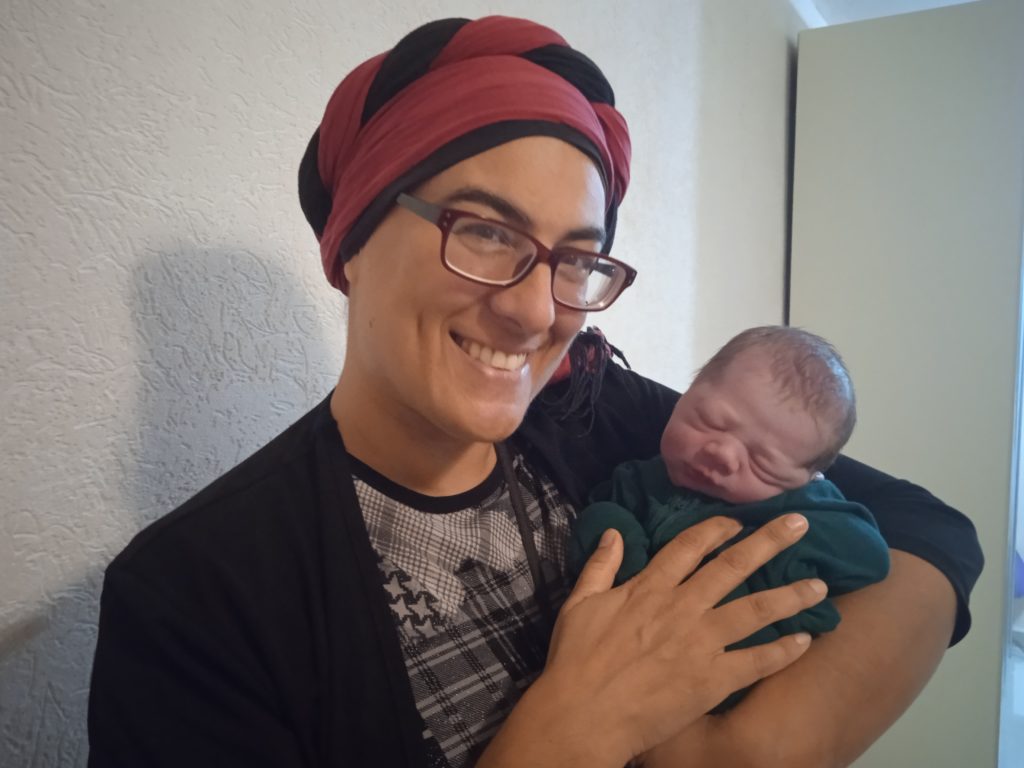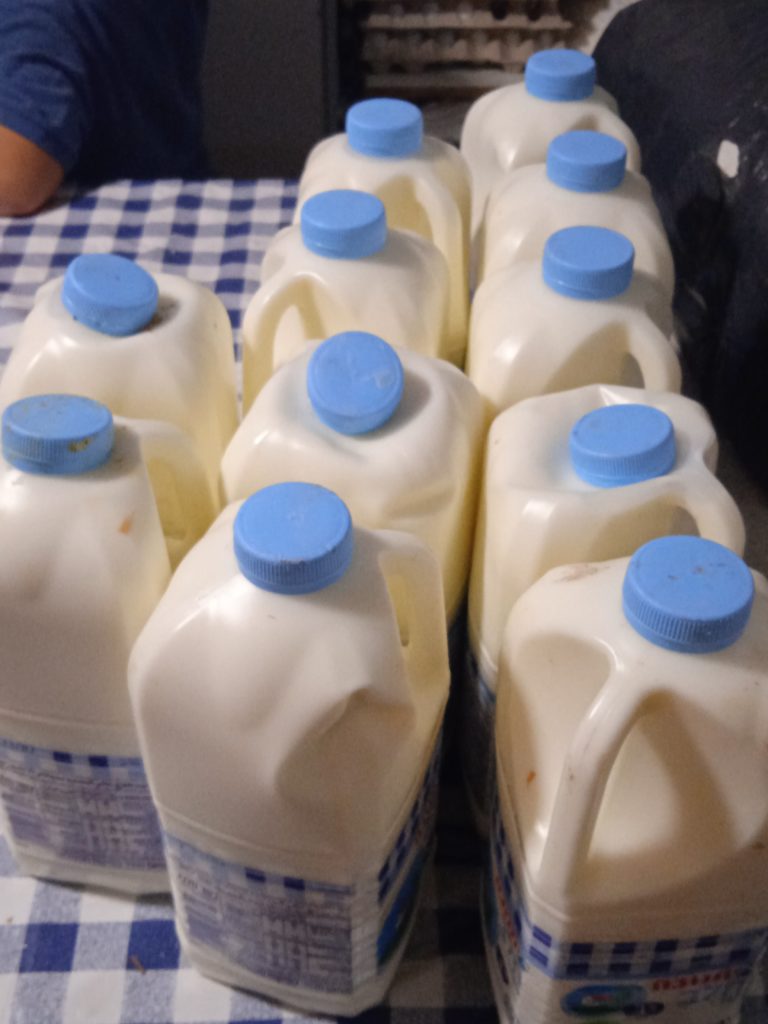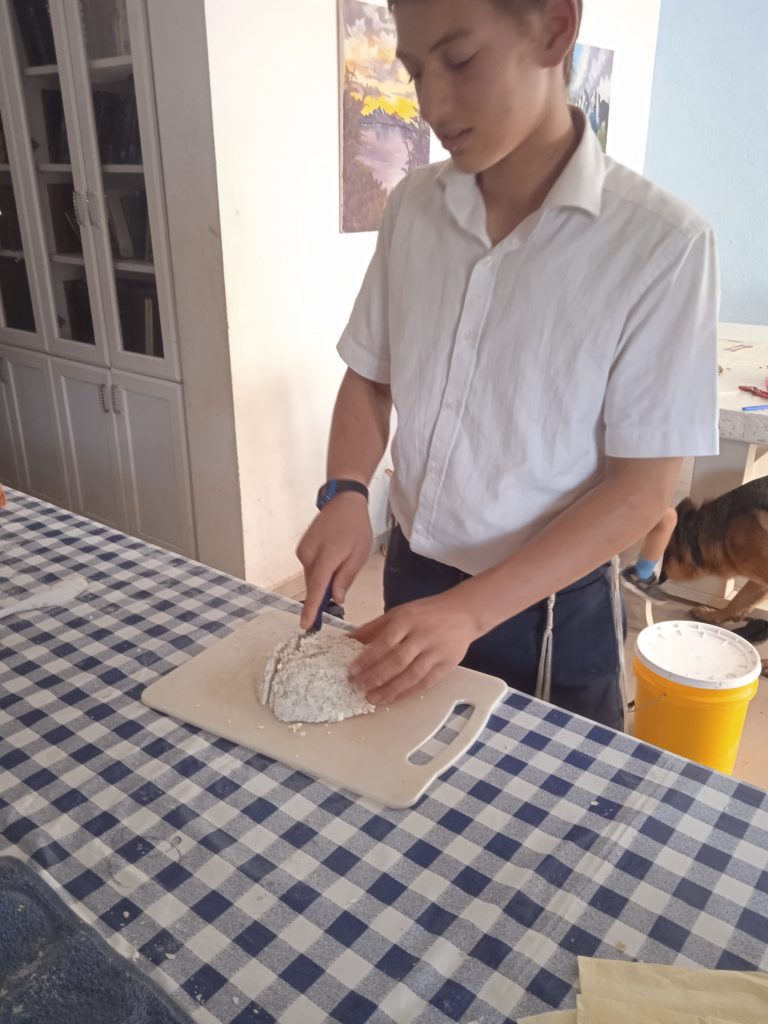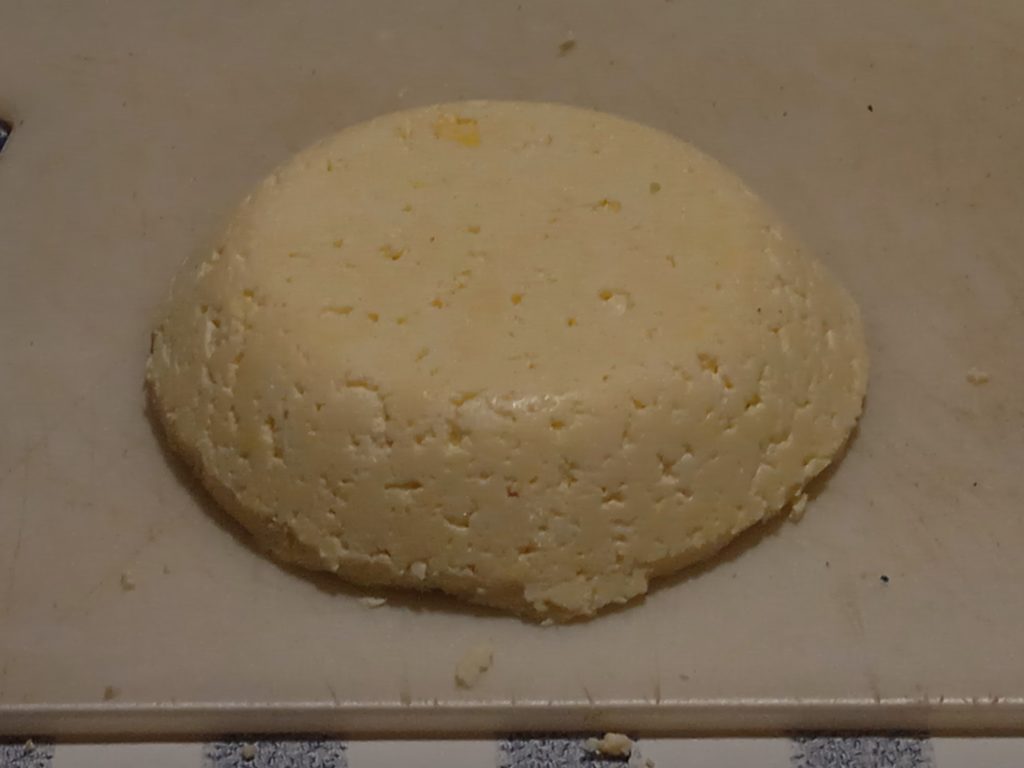My newest grandson’s bris was a week ago on Thursday, and all of our family members stayed for Shabbos, which was lovely. We held off on my birthday circle for a week to celebrate with more family present. I don’t remember what inspired me to begin the birthday circle tradition and when we started – though I know it’s been at least ten years – but it’s become so rich and meaningful to hear people share what they appreciate about the birthday celebrant, and I personally found it very touching and affirming. (My 28 year old son was amazed at the depth of what his 12 year old brother shared – he said he couldn’t have thought of things like that at such a young age. But then again, he hadn’t grown up listening to birthday circles for years by the time he was 12!)
Sandwiching the enjoyment of time with extended family has been different kitchen projects I’ve been busy with of late.
Making applesauce. Canning applesauce. Using apple scraps to make apple cider vinegar. Canning pomelos. Using the pomelo peels to make a citrus cleanser. Making washing soda. Mixing up a new batch of all purpose cleaning powder (which I’ve been using as a frugal eco alternative to laundry detergent). Making meat broth. Canning meat broth. Canning meat. Canning beans. Canning beef stew. Canning 21 pints of mandarin oranges, then turning them into 7 pints of jam. Making lacto fermented lemons. Harvesting moringa. Drying moringa.
Most of these were new projects to me, and new projects always take more time since I have to learn about it before doing it.
I canned low pressure foods like meat and beans when living in the US but sold my pressure canner when I made aliya over ten years ago. Since the winter I’ve been thinking I really, really want to have a pressure canner again, and been wondering how to get one from the US to Israel (since the shipping and taxes are so high if I have it shipped directly, it would be almost three times the cost of the canner itself!). It finally occurred to me to ask my sister if I ordered one and had it sent to her in the US, would she be able to mail it to me? I am so deeply appreciative for her willingness to help me out, and though I had only asked this favor with the agreement I would pay shipping costs, she refused to let me reimburse her (and shipping was more than the cost of the canner). I can’t tell you how happy I was when it arrived three weeks ago – it’s like having an old friend back in my kitchen with me!
This year I want to spend some time learning more about herbal remedies. I’m heavily reliant on vitamin C, because if you know how to properly dose (most people think that 1000 mg is a normal dose to take when sick and that’s hardly worth anything), it takes care of just about everything. Literally. However, it’s something I order from afar that I can’t manufacture on my own (at least not yet – as I wrote that, it occurred to me that maybe that’s something to research, too!) and with a shaky supply chain it’s foolish for me to rely so heavily on someone else for something critical to my family’s health. While every locale has its own medicinal plants available, learning to use them it requires learning and that takes time!
One beautiful plant I have growing in my garden is ‘sheba’. I didn’t know what it was when I bought it – I thought it was pretty so I planted it. I misspelled it in Hebrew when searching for the English translation, so I didn’t find out what it was for quite some time. I asked others who grew it if they knew what it was, and they told me it was very healthy and useful in multiple ways…but didn’t know the translation. I was excited to finally learn that it’s called wormwood, one of the most powerful anti-fungal herbs in the world. Right in my garden without me realizing it! This morning I was noticing how lush it’s become and it needs to be harvested. That’s now been added to my list of things to learn about. 🙂
Busy and blessed, that’s me!
Avivah



